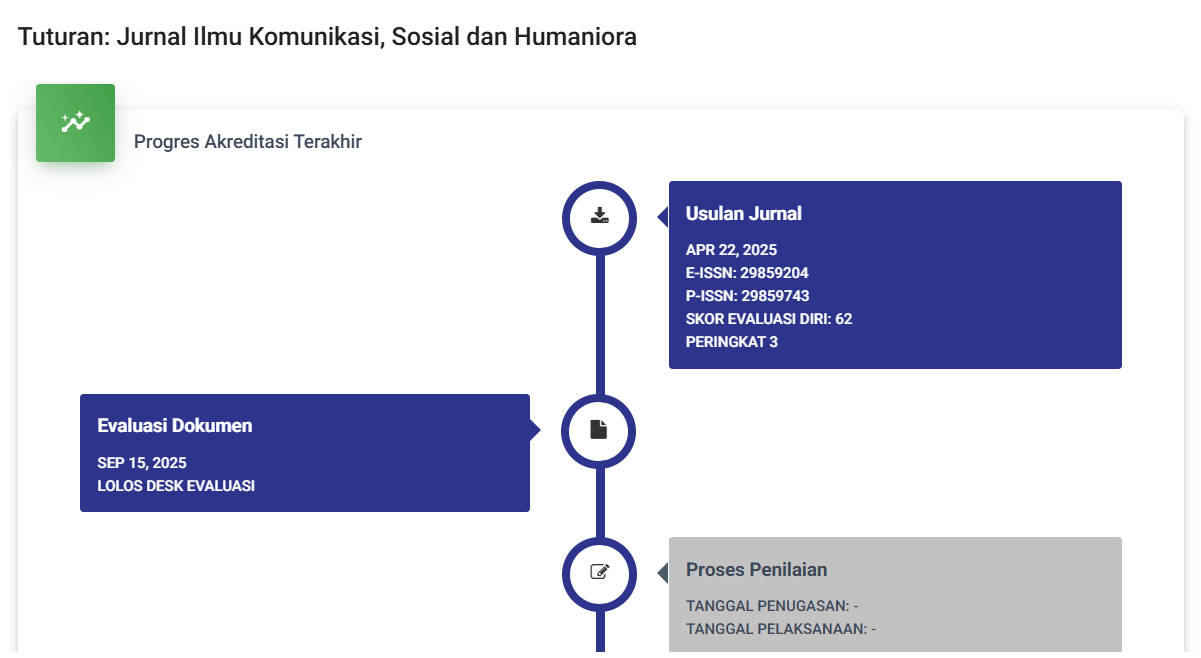Motivasi dan Hambatan Kerja Aparatur Sipil Negara pada Sistem Work From Home (WFH)
(Studi pada Salah Satu Kementerian Di Jakarta)
DOI:
https://doi.org/10.47861/tuturan.v3i1.1586Keywords:
Employee Performance, Work From Home, Work MotivationAbstract
Indonesia is one of the countries affected by the COVID-19 pandemic, this outbreak affects all sectors, both formal and informal. To break the chain of the spread of the corona virus, the government is motivated to issue new regulations that must be applied by the entire community. Policies related to social distancing have also been implemented, one of the policies issued by the government is working from home or Work From Home (WFH). This policy is carried out in companies and government agencies (ASN). Of course, there are many work adjustments experienced by ASN during WFH, especially one of the Ministries in Jakarta which is the object of research. This research is a qualitative research with a case study approach. Data collection was obtained from semi-structured interviews with 5 informants consisting of staff from different departments and Division Heads. This study aims to explain how employees perform, what obstacles are faced by employees and leaders and how employees can maintain productivity during Work From Home.
References
Anugrah, P. G., & Priyambodo, A. B. (2021). Peran work-life balance terhadap kinerja karyawan yang menerapkan work from home (WFH) di masa pandemi COVID-19: Studi literatur. Buku Abstrak Seminar Nasional "Memperkuat Kontribusi Kesehatan Mental Dalam Penyelesaian Pandemi COVID-19: Tinjauan Multidisipliner, 340–349.
Bick, A., Blandin, A., & Mertens, K. (2020). Work from home after the COVID-19 outbreak. Federal Reserve Bank of Dallas, Working Papers, 2020(2017). https://doi.org/10.24149/wp2017r1
Chandrasekar, K. (2011). Workplace environment and its impact on organisational performance in public sector organisations. International Journal of Enterprise Computing and Business Systems.
Hevia, C., & Neumeyer, A. (2020). A conceptual framework for analyzing the economic impact of COVID-19 and its policy implications. Retrieved from www.latinamerica.undp.org
Manullang, M. (2012). Dasar-dasar manajemen bagi pimpinan perusahaan. Gajah Mada Press.
Mungkasa, O. (2020a). Bekerja dari rumah (working from home/WFH): Menuju tatanan baru era pandemi COVID-19. The Indonesian Journal of Development Planning.
Mungkasa, O. (2020b). Bekerja jarak jauh (telecommuting): Konsep, penerapan dan pembelajaran. In Bappenas Working Papers (Vol. 1). Jakarta.
Setiawan, N. S., & Fitrianto, A. R. (2021). Pengaruh work from home (WFH) terhadap kinerja karyawan pada masa pandemi COVID-19. Edukatif: Jurnal Ilmu Pendidikan, 3(5), 3229–3242. https://doi.org/10.31004/edukatif.v3i5.1224
Sutrisno, E. (2013). Manajemen sumber daya manusia. Prenada Media Group.
Syaefudin, R. A., Hanggoro Suseno, W., Teravosa, G., & Ali Syaefudin, R. (2020). Kebijakan bekerja dari rumah (work from home) bagi aparatur sipil negara pada Kementerian Kesehatan. Jakarta.
Vyas, A. (2017). Factors affecting work-life balance: A review. Pacific Business Review International, 9.
Zhang, X., & Bartol, K. M. (2010). Linking empowering leadership and employee creativity: The influence of psychological empowerment, intrinsic motivation, and creative process engagement. The Academy of Management Journal, 53, 107–128.
Downloads
Published
How to Cite
Issue
Section
License
Copyright (c) 2024 TUTURAN: Jurnal Ilmu Komunikasi, Sosial dan Humaniora

This work is licensed under a Creative Commons Attribution 4.0 International License.








